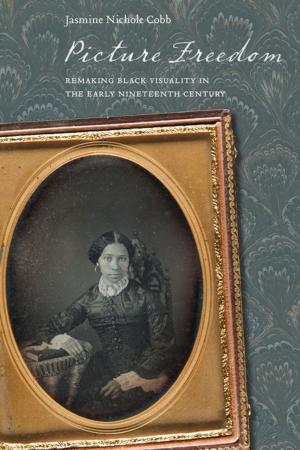Light in the Heavens
Sayings of the Prophet Muhammad
Nonfiction, Religion & Spirituality, Middle East Religions, Islam, Fiction & Literature, Literary Theory & Criticism| Author: | Tahera Qutbuddin, al-Qadi al-Quda'i | ISBN: | 9781479867851 |
| Publisher: | NYU Press | Publication: | November 8, 2016 |
| Imprint: | NYU Press | Language: | English |
| Author: | Tahera Qutbuddin, al-Qadi al-Quda'i |
| ISBN: | 9781479867851 |
| Publisher: | NYU Press |
| Publication: | November 8, 2016 |
| Imprint: | NYU Press |
| Language: | English |
Sayings of the Prophet Muhammad, wielding an authority second only to the Qur'an.
The words of Muhammad (d. 11/632), God's messenger and prophet of Islam, have a special place in the hearts of his followers. Wielding an authority second only to the Qur'an, Muhammad’s hadith are cited by scholars as testimonial texts in a vast array of disciplines—including law, theology, metaphysics, poetry, grammar, history, and medicine—and are quoted by Muslims to one another in their daily lives.
Assembling Muhammad’s words has been a major preoccupation for scholars throughout the fourteen centuries since his death, resulting in an abundance of compilations. Among the legally-grounded collections, which aimed to guide the community in its practice of religious law and ritual worship, one which stands out in particular is Light in the Heavens (Kitab al-Shihab) by al-Qadi al-Quda'i, a Shafi'i judge in the Fatimid court in Egypt. The collection’s overall conceptualization is distinctively ethical and pragmatic, and offers humanitarian lessons and practical insights with universal appeal.
From North Africa to India, generations have used Light in the Heavens as a teaching text for children as well as adults, and many of its 1200 sayings are familiar to individuals of diverse denominations and ethnicities. For Muslims—who consider Muhammad’s teachings the fount of wisdom and the beacon of guidance in all things, mundane and sublime—these sayings provide a direct window into the inspired vision of one of the most influential humans to have walked the Earth.
Sayings of the Prophet Muhammad, wielding an authority second only to the Qur'an.
The words of Muhammad (d. 11/632), God's messenger and prophet of Islam, have a special place in the hearts of his followers. Wielding an authority second only to the Qur'an, Muhammad’s hadith are cited by scholars as testimonial texts in a vast array of disciplines—including law, theology, metaphysics, poetry, grammar, history, and medicine—and are quoted by Muslims to one another in their daily lives.
Assembling Muhammad’s words has been a major preoccupation for scholars throughout the fourteen centuries since his death, resulting in an abundance of compilations. Among the legally-grounded collections, which aimed to guide the community in its practice of religious law and ritual worship, one which stands out in particular is Light in the Heavens (Kitab al-Shihab) by al-Qadi al-Quda'i, a Shafi'i judge in the Fatimid court in Egypt. The collection’s overall conceptualization is distinctively ethical and pragmatic, and offers humanitarian lessons and practical insights with universal appeal.
From North Africa to India, generations have used Light in the Heavens as a teaching text for children as well as adults, and many of its 1200 sayings are familiar to individuals of diverse denominations and ethnicities. For Muslims—who consider Muhammad’s teachings the fount of wisdom and the beacon of guidance in all things, mundane and sublime—these sayings provide a direct window into the inspired vision of one of the most influential humans to have walked the Earth.















